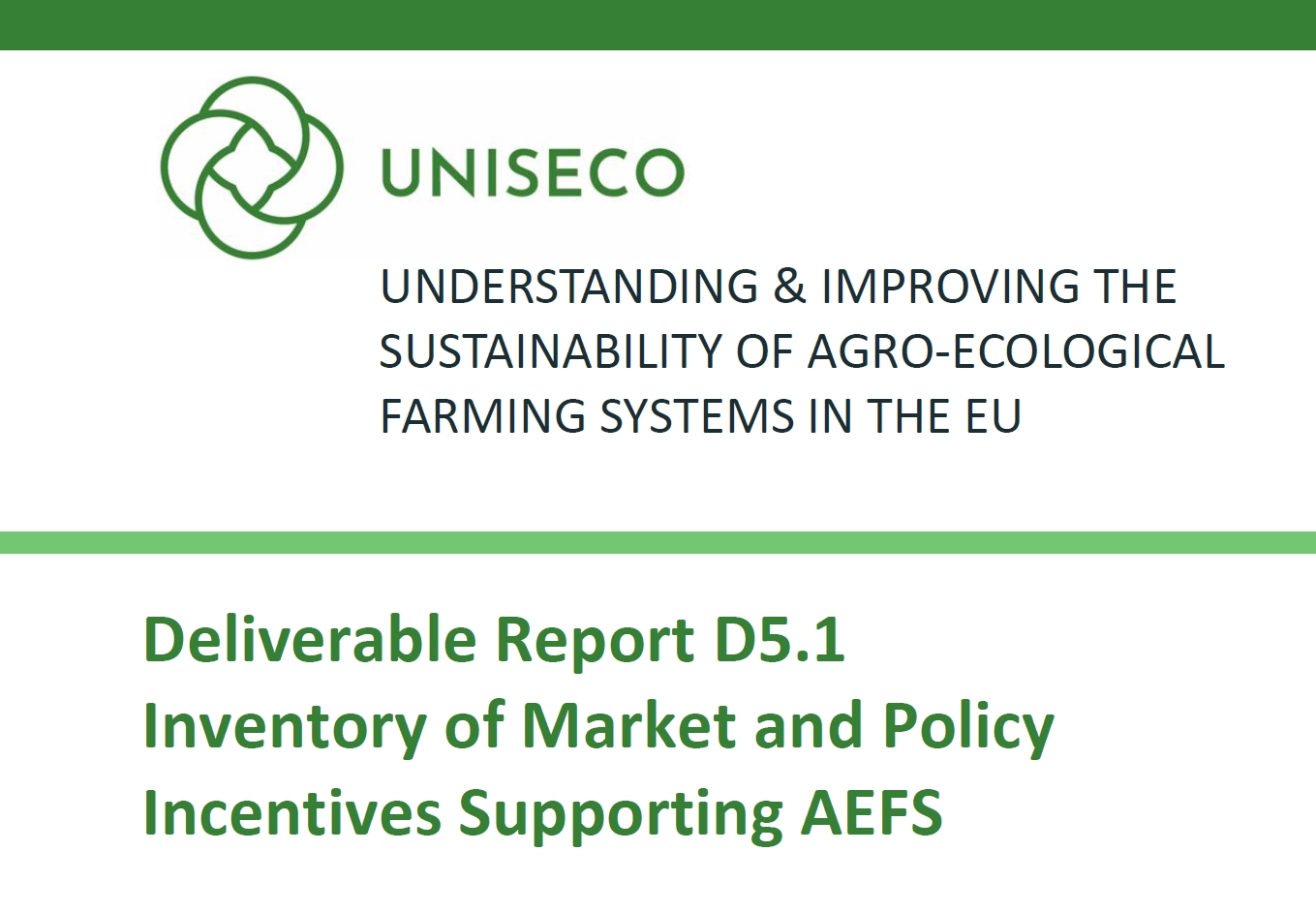The overarching objective of WP5 is to analyse market and policy incentives, with governance mechanisms, supporting transitions to AEFS and to co-construct with EU, national and local stakeholders relevant policy options targeting different spatial and institutional scales. The first task of WP5 has been to compile an up-to-date inventory of examples of market and policy incentives supporting AEFS (Deliverable D5.1).
A total of 69 examples of policy and market incentives from European countries were included in the compilation of policy and market incentives based on a review of national agricultural policies, databases and consultations with EU and national stakeholders. Of these 69 examples, a similar number are policy instruments (30) and market instruments (27), and fewer mixed initiatives involving a joint participation of public and private sector institutions (12). These figures illustrate the role already played by the private sector in promoting agro-ecological initiatives, and the opportunity for greater cooperation between public and private sector institutions in supporting agro-ecology.
Although the selected market and policy tools included in the compilation are only a few of the diverse approaches and practices being implemented across the EU, the report offers an overview of the typologies of policies, strategic plans, measures, regulations, economic and financial support implemented by public institutions that may facilitate the transition towards AEFS. Similarly, the examples of market incentives collected in the compilation – that are adopted at different levels and promoted by different actors (including suppliers, traders, wholesalers, processors, retailers, distributors, financers, shippers, etc.) – provide a preliminary overview of the different types of incentives that may be activated across the value chains to facilitate the transition towards AEFS.
The report shows that complex mixes of economic and policy instruments are adopted at different governance levels and in different socio-economic contexts formulates key emerging issues on the role of policy and market incentives for agro-ecological transitions. The most effective tools appear to be those that rely on innovative institutional arrangements fostering cooperation between private and public actors and those that effectively involve the interests and marketing strategies of value chain actors in agro-ecological transitions.
We would like to thank the stakeholders who took part in the consultations for sharing their views on innovative policy and market incentives supporting the transition to agro-ecological farming in Europe.
Download:
D5.1 - Inventory of Market and Policy Incentives Supporting AEFS - main report
